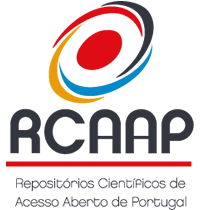Nutritional profile evaluation of plant-based fermented products alternative to yogurts available in the Portuguese market
DOI:
https://doi.org/10.48797/sl.2024.248Keywords:
PosterAbstract
Background: In recent years, there has been a growing number of people following a plant-based diet, accompanied by the emergence of dairy analogs on the market, presenting themselves as plant-based alternatives. These products seek to mimic the organoleptic characteristics of dairy products, but their nutritional profiles are not always similar [1,2]. Objective:Classify the plant-based fermented products alternative to yogurts according to nutritional classification systems – Nutri-Score and Traffic light [3,4] - and compare their nutritional profile with yogurts. Methods: Market research was carried out on the websites of three Portuguese supermarket chains, along February 2024, collecting existing information on available plant-based fermented yogurts. Both nutritional classifications systems were applied to 47 products, which met the inclusion criteria “availability of the nutritional declaration and ingredient list online”. Subsequently, the nutritional composition of these products was compared with that of yogurts available in the Portuguese Food Composition Table [5]. Results: Of the 47 considered products, 49% (n=23) obtained classification A, 32% (n=15) classification B and 19% (n=9) classification C, according to Nutri-Score, while according to Traffic light, 19% (n=9) of these products showed all parameters in green. On average, per 100 grams of product, plant-based fermented yogurts have a lower sugar content (6.5 g compared to 8.4 g in yogurts), while the values of lipids (2.4 g), saturated fatty acids (0.9 g) and salt (0.19 g) of these preparations are similar to that of yogurts (2 g, 1.2 g and 0.17 g, respectively). Most products included are fortified (57%), with calcium and vitamins D, B12 and B2 being the most frequently added micronutrients. Conclusion: According to Nutri-Score, the highest ratings, A and B, represent most products while the highest Traffic light rating constitutes only 19% (n=9) of all products. The macronutrient content of these products is similar to yogurts. Micronutrient fortification is not present in all plant-based fermented yogurts available on the Portuguese market.
References
1. Plamada, D.; Teleky, B.-E.; Nemes, S. A.; Mitrea, L.; Szabo, K.; Călinoiu, L.-F.; Pascuta, M.S.; Varvara, R.-A.; Ciont, C.; Martău, G.A.; Simon, E.; Barta, G.; Dulf, F.V.; Vodnar, D.C.; Nitescu, M. Plant-Based Dairy Alternatives—A Future Direction to the Milky Way. Foods (2023), 12(9), 1883.
2. WHO. (2021). Plant-based diets and their impact on health, sustainability and the environment A review of the evidence WHO European Office for the Prevention and Control of Noncommunicable Diseases.
3. Lobstein, T.; Davies, S. Defining and labelling ‘healthy’ and ‘unhealthy’ food. Public Health Nutr (2009), 12(3), 331-340.
4. van der Bend, D.L.M.; van Eijsden, M.; van Roost, M.H.I.; de Graaf, K.; Roodenburg, A.J.C. The Nutri-Score algorithm: Evaluation of its validation process. FRONT NUTR (2022), 9, 974003.
5. Instituto Nacional de Saúde Doutor Ricardo Jorge (2023). Tabela de Composição dos Alimentos.
Downloads
Published
How to Cite
Issue
Section
License
Copyright (c) 2024 Inês Maltez, Inês Garcia, Helena Real

This work is licensed under a Creative Commons Attribution 4.0 International License.
In Scientific Letters, articles are published under a CC-BY license (Creative Commons Attribution 4.0 International License), the most open license available. The users can share (copy and redistribute the material in any medium or format) and adapt (remix, transform, and build upon the material for any purpose, even commercially), as long as they give appropriate credit, provide a link to the license, and indicate if changes were made (read the full text of the license terms and conditions of use).
The author is the owner of the copyright.









